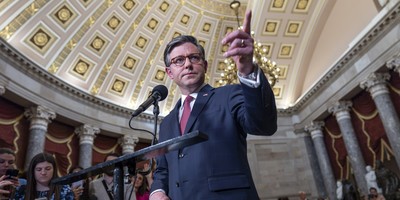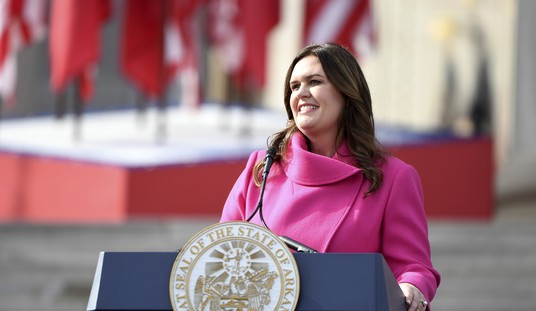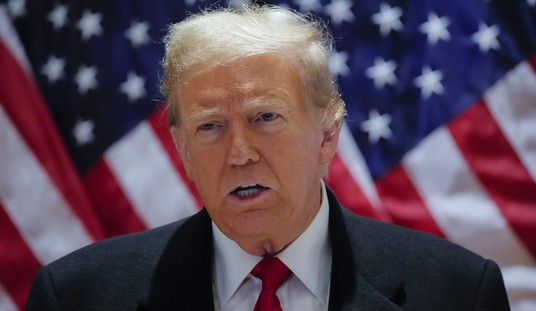MECKLENBURG COUNTY, N.C. -- The impatient patriots here had splendidly short fuses in 1775. Those who tilled the startlingly red clay or who lived in the town named for George III's wife Charlotte might have been bemused had they foreseen the annual hoopla that commemorates July 4, 1776.
What occurred that day in Philadelphia might have been a Declaration of Independence, but the first such was enacted here on May 20, 1775. Presbyterians, meaning most Mecklenburgers, were incensed by Anglican meddling from London, such as the Vestry and Marriage Acts of 1769, which imposed fines on Presbyterian ministers who conducted marriage ceremonies. Marriage as a political issue is not just a recent phenomenon.
On May 19, 1775, the day before the Mecklenburg convention met to act on such grievances, a rider arrived with news from Massachusetts about the April bloodshed at Lexington and Concord. The next day, Mecklenburg's convention declared:
"We the citizens of Mecklenburg County do hereby dissolve the political bands which have connected us to the mother country. ... We do hereby declare ourselves a free and independent people ... to the maintenance of which independence, we solemnly pledge to each other our mutual cooperation, our lives, our fortunes, and our most sacred honor."
Thus did a settlement on the fringe of the British Empire declare war on that empire. It used language -- note, especially, the last nine words -- that is echoed in the 1776 declaration, for reasons explained in a new book, "The 4th of July and the Founding of America," by Peter de Bolla of King's College, Cambridge. He is fascinated by Americans' fascination with the fact, such as it is, that their country had, as few nations can claim, an "originative moment." But what, and when, was it?
The Declaration of Independence was not signed that day by the 56 persons whose signatures would eventually adorn it. Perhaps no one signed it that day; the evidence is murky. Still, uncountable millions believe otherwise because they have seen John Trumbull's painting, in the U.S. Capitol's rotunda, depicting Thomas Jefferson, at the center of six colleagues, holding "his" Declaration on July 4, as though for signing.
Recommended
What Congress actually did that day was agree to print and publish the Declaration authorized two days earlier. So, was July 2 what de Bolla calls the "punctual moment"? John Adams thought that day "will be the most memorable Epocha, in the History of America."
What was voted on July 2 was, however, really decided on July 1. But on June 28, Congress considered Jefferson's draft of the Declaration, so was the die then cast? Or was it cast on June 10, when Congress voted that "a committee be appointed to prepare a declaration"? The Declaration was first actually declared -- read aloud to a crowd (at the State House, now Independence Hall) -- on July 8.
De Bolla says that unlike certain events, such as an earthquake or the beheading of a monarch, the birth of a nation has "a different kind of temporality," one constructed as a tradition. This is true even of the United States, which did not, like Germany and France, emerge over millennia from history's mists.
Fifty years later, less than two months before his (and John Adams') death on July 4, 1826, Jefferson was determinedly protective of his reputation as (he directed his tombstone to declare this) "author" of the Declaration. Still, he candidly acknowledged that it "was intended to be an expression of the American mind," not "aiming at originality of principle or sentiment." Hence, "all its authority rests then on the harmonizing sentiments of the day."
Certain politically charged rhetorical tropes were then society's common property. Writing shortly before his death, Jefferson affirmed his belief that "the mass of mankind has not been born with saddles on their backs, nor a favored few booted and spurred, ready to ride them legitimately, by the grace of God." Those words were as stirring then as they had been when one of Oliver Cromwell's soldiers declared from the scaffold, "I never could believe that Providence had sent a few men into the world, ready booted and spurred to ride, and millions ready saddled and bridled to be ridden."
What de Bolla calls "the intricate history of the nation's founding document" does not and should not inhibit Americans from asserting the truth that their nation originated on July 4, 1776. They hold that to be a self-evident truth, which means they have decided to believe it, thereby making it a self-validating tradition. So there.

























Join the conversation as a VIP Member